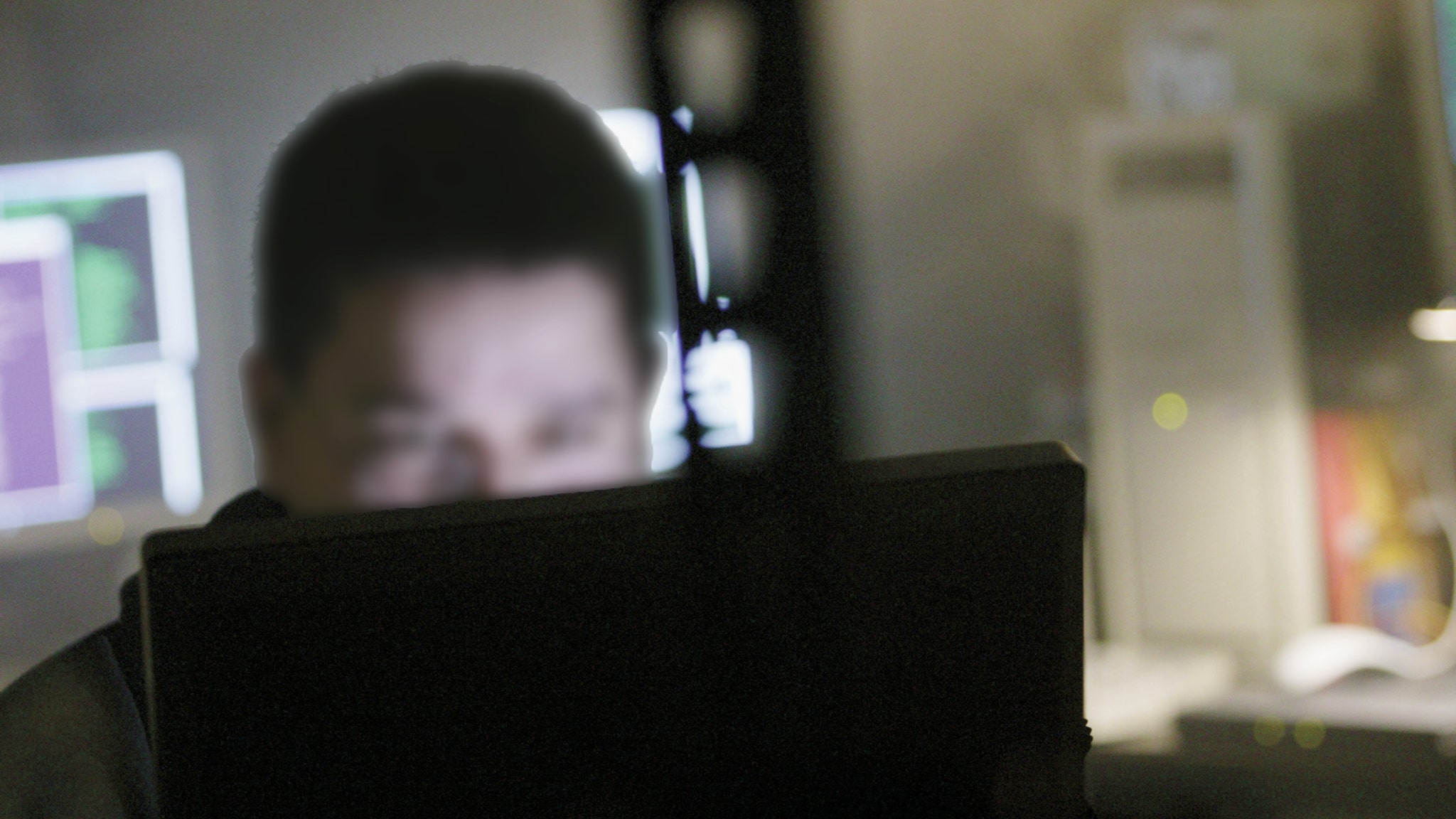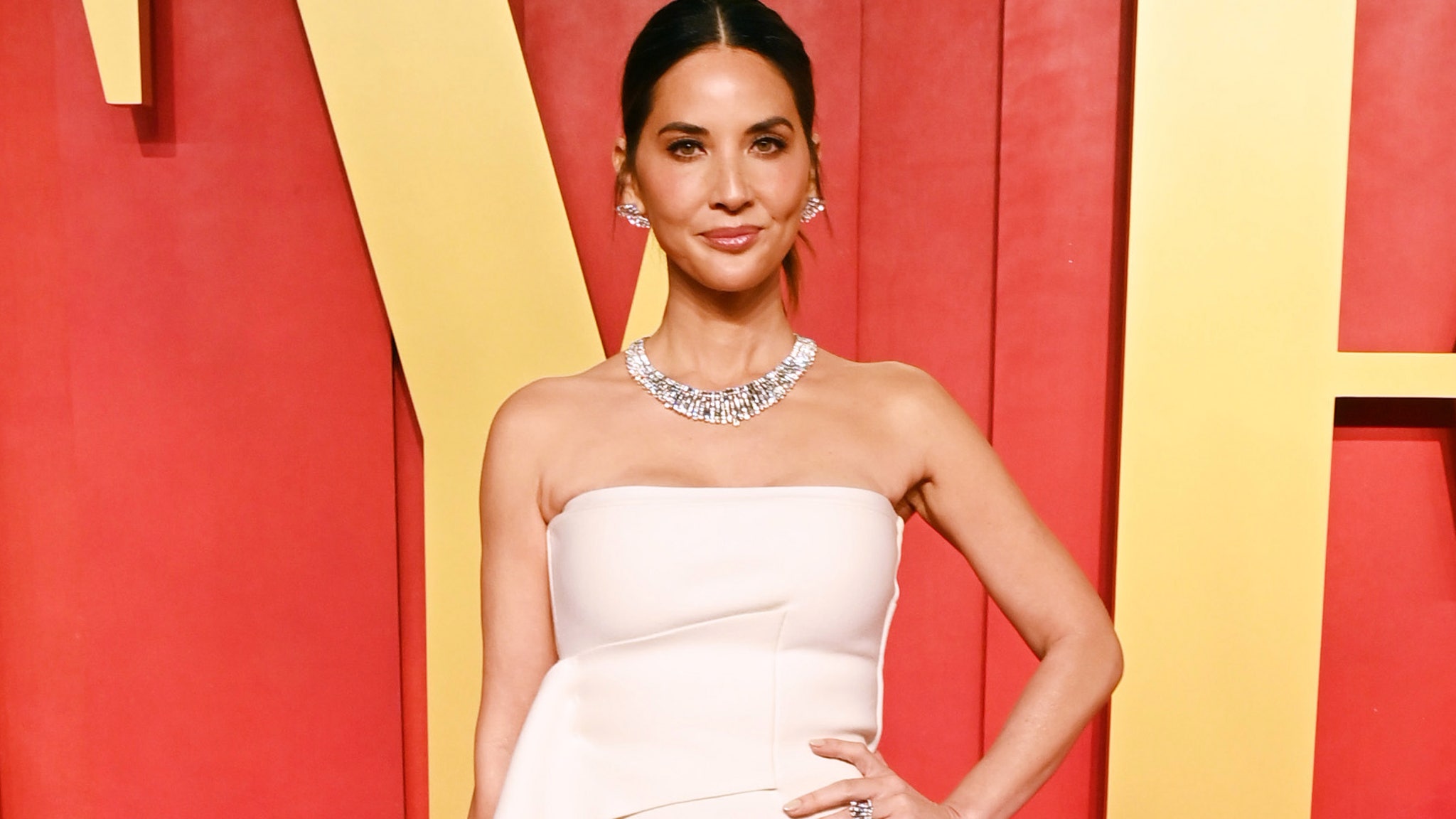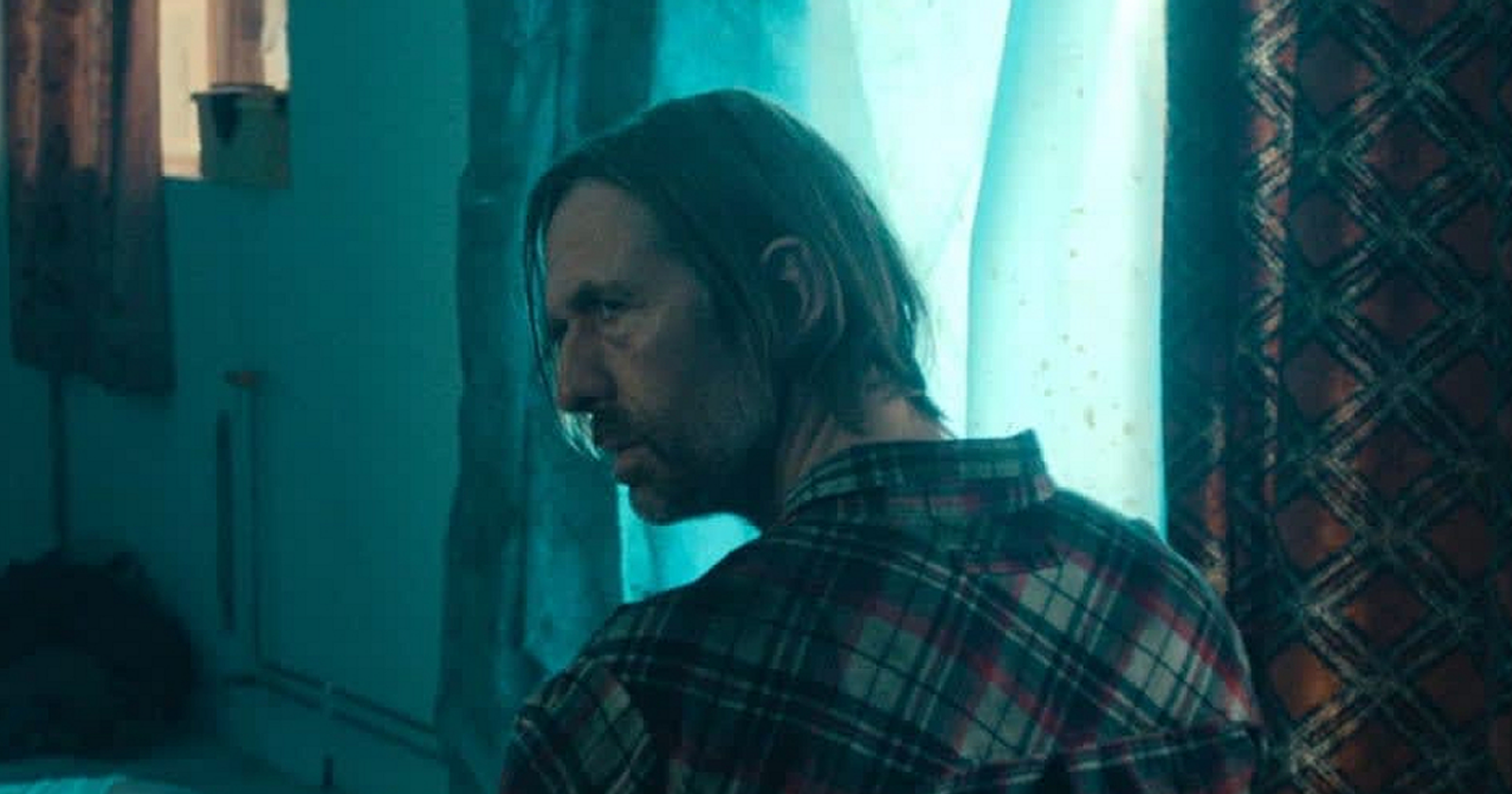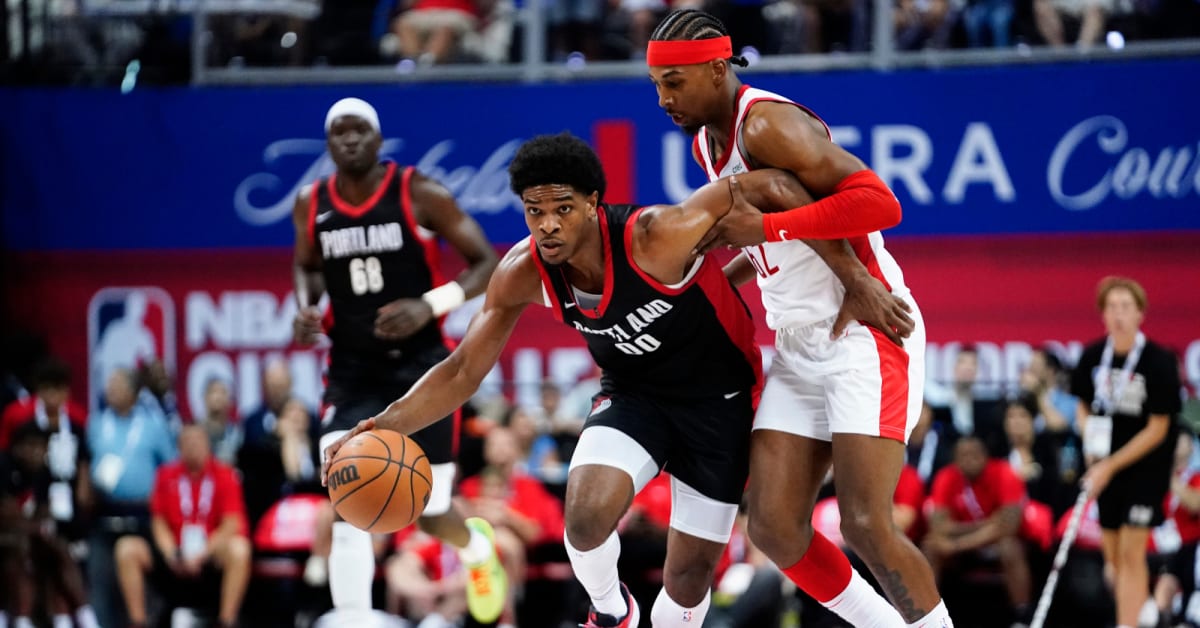
The Best TV Shows Of 2022 (So Far)
After all those lockdowns, being able to get back out into the world has been a particular pleasure in 2022. But be honest – the number of must-see TV shows that have arrived this year have made staying at home a major temptation too. From returning series that have upped the stakes and piled on the twists, to brand new stellar shows taking us to whole new worlds, 2022 has already brought a bounty of incredible television. Across both streaming services (Apple TV+ has been especially bountiful in recent months) and traditional terrestrial, the box has once again had us hooked with gripping dramas and heartwarming comedies, boasting loveable characters and blockbuster-level production values.
As we reach the midway point of the year, Empire presents the best TV shows of 2022 so far – a globe-trotting selection spanning genres, from soaring superheroics to gritty cop dramas, sci-fi showdowns to heartbreaking medical dramas. Read the top 20 below, and check out the best films of 2022 so far here.
The Best TV Shows Of 2022 (So Far)
 1 of 20
1 of 20
Everybody loves an underdog. Mick Herron’s Slough House books are espionage thrillers with a twist, focusing on the rejects, outcasts and misfits of her majesty’s intelligence service — a delightful proposition that translates perfectly to this six-part Apple series. Gary Oldman steals the show as swearing, farting, washed-up spy Jackson Lamb, overseeing a gaggle of operatives in exile, including the recently demoted and shamed River Cartwright (Jack Lowden). The plot of this first season (based on Herron’s first book) is a taut conspiracy involving a kidnapping, extremists and weaponising public opinion, but the real delight here is the character-work. Lamb’s team of fuck-ups are lovable losers one and all, but it’s Oldman that dominates, his scenes spent trading barbs with Kristin Scott Thomas’ icy intelligence chief being pure, profanity-laden art. Funny, surprising and occasionally touching, Slow Horses’ setup may position it as Poundland Le Carré, but the execution is anything but. The cherry on top? Season 2 was shot before the first had even aired, making more Slough House goodness a welcome certainty.
Read the Empire review of Slow Horses.
 2 of 20
2 of 20
Time travel stories are as old as the hills, but it’s extremely rare to find one with a genuinely fresh idea at its heart. Such is the case with Joe Barton’s (Giri/Haji) The Lazarus Project, which postulates that the presence of a convenient singularity creates a checkpoint every 1 July. For the next 12 months, a covert government agency can turn the clock back to that same summer morning in order to avert extinction level events. Paapa Essiedu (Gangs Of London, I May Destroy You) plays app designer George, whose innate ability to ‘remember’ the resets gets him recruited and hastily inducted into a world of espionage and government-sponsored temporal tinkering. Not only is the show packed with stellar performances (both Anjli Mohindra and Tom Burke are on excellent form) but Barton’s story morphs and shifts along with its looping timeline, wrong-footing you just when you think you have the plot all figured out. Throw in exploration of morality, consequence (and lack thereof) and weighing personal need with the greater good and you have a thrilling, slickly produced sci-fi show that’s as thought-provoking as it is fiendishly addictive.
Read Empire's review of The Lazarus Project.
 3 of 20
3 of 20
Talk about a blast of cosmic energy. Comic book fan favourite Kamala Khan finally entered the MCU in a Disney+ series that captured her youthful spirit, effervescent personality, and the specificities of her cultural heritage in spades. While lead directors Adil & Bilall established an eye-popping visual identity from the off (heavily influenced by the kinetic dazzle of Scott Pilgrim Vs. The World; the texting sequences are off-the-charts in their sense of invention), the show’s greatest success proved to be the casting of Iman Vellani – endearing to the extreme, utterly convincing in Kamala’s superhero fandom (Vellani is a major MCU fan in real life), and sure to be a prime player in The Marvels and beyond. But the series was captivating in other ways too – particularly its twists on the source of Kamala’s power, delving into the Partition of India with power and intent, before dropping a major Marvel bombshell in the closing minutes of the finale. An MCU show that’ll embiggen your heart.
Read the Empire review of Ms. Marvel.
 4 of 20
4 of 20
The superhero show that pushes the boundaries of just what is acceptable to be seen by the human eye, The Boys returned for its third season this year – and this run of episodes is its best yet. Is it because of the horrifying sex-scene-gone-wrong involving Ant-Man-esque supe Termite? The unexpected musical number? Or is it because we finally witnessed the infamous ‘Herogasm’, which included a character called Love Sausage, an indecent act with an octopus, and an explosive climax (in more ways than one)? The answer is – all of the above, and more. This season weaved all of its plot threads together more masterfully than ever before, with the arrival of ruthless relic Soldier Boy (Jensen Ackles), Butcher (Karl Urban) and Hughie’s (Jack Quaid) use of temporary V and the spot-on reflection of how America is being pided IRL notching up the drama as well as the action. Plus, Antony Starr’s Homelander is more menacing than ever.
Read the Empire review of The Boys: Season 3.
 5 of 20
5 of 20
Steven Knight’s saga of Brummie gangsters with razors in their flatcaps has been nothing short of a phenomenon. Turning a gaggle of working class, Small Heath criminals into the Rolling Stones of organised crime, this BBC drama, with its anachronistic needle drops and slick slo-mo camerawork, has stood toe-to-toe with anything America has produced. In this final season, the show shifts down a gear, gaining a sombre, introspective air in the wake of series MVP Helen McCrory’s tragic death. Her real-life departure is handled on screen with sensitivity and grace, becoming a catalyst for Tommy Shelby’s (Cillian Murphy) unmooring, one that denies him his most steadfast ally as he faces his most insidious foe (Sam Claflin’s sneeringly detestable Oswald Mosley). Beginning more slowly than fans were used to, the series’ early episodes focused on old wounds torn open and the now-fraying bonds between the characters we’ve come to know and love. But by the time the final episodes arrived — with all the vim and swagger we’ve come to expect — and Tommy’s damnation or redemption hung in the balance, we were once more reminded that Knight’s whisky-soaked, bullet-scored saga is among the most riveting and operatic things on television.
Read the Empire review of Peaky Blinders: Season 6.
 6 of 20
6 of 20
Releasing a drama about a devastating, deadly viral pandemic as the world was slowly creeping out of the worst of its own health crisis sounds like a fool's errand — who wants to watch a show that hits so close to home? Yet Station Eleven is about so much more than the aftermath. It's about the hope and the healing, the struggle for humanity in the face of crisis. And it finds real beauty in the telling, set both as the crisis starts to hit (with Himesh Patel's Jeevan Chaudhary trying to survive) and after (focusing on Mackenzie Davis as Kirsten Raymonde, who acts in one of the travelling theatre troupes that have sprung up). The Leftovers' Patrick Somerville adapts Emily St. John Mandel's much-loved bestseller, changing what was necessary while maintaining the source's spirit.
Read the Empire review of Station Eleven.
 7 of 20
7 of 20
When James Gunn and John Cena announced they were spinning off The Suicide Squad’s ultra-patriotic super-twat Peacemaker into his own show, audiences were dubious. That guy, with the weird toilet-seat helmet? Who apparently died in the film, brought back to life in a post-credit sting? And whose contribution to that movie was entirely crass humour and traitorous antics? But rest assured – it works. In the show, Cena’s Christopher Smith reluctantly teams up with special agents Emilia (Jennifer Holland), Clemson (Chukwudi Iwuji), Leota (Danielle Brooks) and John (Steve Agee) to investigate some deadly alien insects they call Butterflies. Gunn manages to balance his signature brand of snark with surprising soulfulness, and Freddie Stroma steals the show as the volatile, child-like Vigilante.
 8 of 20
8 of 20
Jack Rooke’s bittersweet show, moulded on his own experiences of grief and growing up gay, is a masterful exercise in blending heart and humour. The series begins with Jack (played by Derry Girls’ Dylan Llewellyn) mourning the loss of his dad to cancer, leaving him and his mum (Camille Coduri, an utter delight) to look after each other. After Jack eventually peels himself out of his depressive cocoon and starts university, he meets Danny (Jon Pointing), who is masking his own problems with a party-hungry fresher’s exterior. Rooke’s strengths lie in his detailed and tender writing, full of nuance and familiarity that will strike a chord with anyone, but especially those who relish a Harvester salad bar. A kind-hearted, self-deprecating and hilarious coming-of-age treat.
 9 of 20
9 of 20
Part riveting crime drama, part intensely moving rumination on the devastating impact of the 1984 miners’ strike on working-class communities, this massively ambitious six-part BBC1 drama written by James Graham (Quiz) also delves into the scandalous deployment of “spy cops” – police officers sent as undercover infiltrators into “radical” communities where they often stayed for years, forging relationships with people who had no idea who they really were. With a Rolls Royce ensemble of British acting greats (David Morrissey! Lesley Manville! Adeel Akhtar!), this exceptional achievement feels like the spiritual successor to classic series by the likes of Alan Bleasdale, Dennis Potter and Jimmy McGovern. It’s that good.
 10 of 20
10 of 20
There are an abundance of emergency service dramas on our televisions at any one time, but few are quite as impactful as The Responder, BBC’s five-part series following Martin Freeman’s Chris Carson, a police officer pushed closer and closer to the edge every day by the soul-sapping situations he has to deal with. This is Tony Schumacher’s screenwriting debut, his past life as a copper lending a bleak authenticity to his remarkably lean script – and Freeman is on impeccable form, putting in a powerful performance as a man worn down by the grim realities of his work, but who still wants to do some good in the world. Similarly to This Is Going To Hurt, this is thrilling TV that brings the stark reality of blue-light life into full, fascinating focus.
 11 of 20
11 of 20
Adapted from Adam Kay’s best-selling memoir of the same name, This Is Going To Hurt thrusts the viewer into the chaotic life of a junior doctor in the overworked, under-resourced Obstetrics and Gynaecology department of the NHS. Ben Whishaw gives a career-best performance as Kay himself, managing to deliver the charm, comedy and cruelty required of the role, and mastering the art of the fourth-wall-break. Newcomer Ambika Mod shines as new junior colleague Shruti, and Rory Fleck Byrne also provides strong support as boyfriend Harry, both of them often in the firing line when Adam’s overwhelm reaches breaking point. A terrific, tragically comic drama that sets the bar for material moving from page to screen, as well as painting a vivid picture of healthcare workers’ experience across the UK.
Read the Empire review of This Is Going To Hurt.
 12 of 20
12 of 20
Spanning several timelines, Pachinko sees Soo Hugh adapting Min Jin Lee's bestseller that chronicles the lives of a Korean immigrant family across four generations. Eschewing easy answers and stereotypical stories, the show keeps the drama twisting and turning, and actors such as Kim Min-ha, Lee Min-Ho and Minari Oscar winner Youn Yuh-jung are always up to the challenge. It's honestly astonishing that this wasn't included in the Emmys for any of its performances, scripting or direction (it did get a nod for the dance-tastic main titles) — and don't make the excuse that it's somehow hidden away on Apple TV+, since Severance and Ted Lasso made the cut for the main categories.
Read the Empire review of Pachinko.
 13 of 20
13 of 20
The secret to comedy might famously be timing, but it took far too long for Hacks to make it over from the States. Still, it was well worth the wait, with us getting to see both Season 1 and 2 within a matter of months. Starring the effortlessly biting and funny Jean Smart as veteran stand-up Deborah Vance (ludicrously rich thanks to her long career and Vegas residency), the show initially appeared to explore the culture clash between Deborah and Ava (Hannah Einbinder), the younger comedy writer hired to help her refresh her act. But, as designed by Lucia Aniello, Paul W. Downs and Jen Statsky, it has evolved into so much more: a meditation on complicated female friendship, a look at tough family dynamics and, in breakout Megan Stalter as the unpredictable assistant to Deborah's agent Jimmy (played by Downs), a reliable workplace laugh-grabber.
Read the Empire review of Hacks: Season 1.
 14 of 20
14 of 20
Everyone’s favourite hitman returns. The third season of Bill Hader’s blackest-of-comedies saw the soldier-turned-assassin-turned-wannabe-actor hit all kinds of rock bottoms, as he continues to avoid taking accountability for his actions. Now that his father figure and former acting coach Gene Cousineau (an impeccable Henry Winkler) knows his secret, Barry is forced to go to even greater lengths to keep it hidden, drawing the wrath of old manager Fuches (Stephen Root) and alienating girlfriend Sally (Sarah Goldberg), who is in the midst of showrunning her own series, in the process. Every element is taken to the next level – the comedy is more hilariously blunt and surreal, the action more elaborate and suspenseful, and the dark moments? Hoo boy, they are darker than ever. With this season, Hader solidifies his talents as a director – making the fact he’s confirmed to be helming every episode of the fourth season all the more exciting.
 15 of 20
15 of 20
It took three years for us to finally head back to Hawkins, but boy, was it worth the wait. Season 4 is Stranger Things’ biggest and scariest yet, with the gang trying to take down sinister serial killer Vecna despite being more separated than ever. Reigniting the world’s love for Kate Bush and spawning a new metal idol in Eddie Munson (Joseph Quinn), the Duffer brothers’ nostalgic supernatural thriller series broke viewership records for Netflix, racking up over a billion hours watched with the release of Volume 2 (no doubt helped by those incredibly long, but undoubtedly earned, episode runtimes). Thrilling, emotional and cleverly connecting the dots on Stranger Things seasons past, Season 4 is pure blockbuster TV, and sets us up for an epic fifth and final trip to the Upside Down.
Read the Empire review of Stranger Things 4 Volume 1.
Read the Empire review of Stranger Things 4 Volume 2.
 16 of 20
16 of 20
While touted as David Simon’s follow-up to The Wire, this adaptation of Justin Fenton’s nonfiction book is more a postscript to his fictional noughties series about the effect of drugs, crime and policing on the streets of inner-city Baltimore. Jon Bernthal stars as Sergeant Wayne Jenkins, the charismatic head of BPD’s corrupt Gun Trace Task Force — think The Shield’s Vic Mackey, only more brazen and less fictional — whose approach to law enforcement involves cracking skulls and lining his own pockets at every turn. Set predominantly in the aftermath of the 2015 BPD killing of Freddie Gray, the show hops back and forth in the timeline of Jenkins’ career (Bernthal’s increasingly scraggly facial hair acting as a handy temporal guide), steadily peeling back the layers of institutionalised, endemic corruption that appears to reach every echelon of Baltimore society, and going far beyond the methods of a handful of brutal cops. It’s a fast-moving, take-no-prisoners show that demands laser focus throughout, Simon laying bare the rot at the heart of an American institution that may ultimately be beyond repair.
Read the Empire review of We Own This City.
 17 of 20
17 of 20
Expectations were always going to be high for the third and final season of Lisa McGee’s superlative schoolgirl comedy – thankfully, the show managed to stick the landing, delivering another hilarious, emotional run of episodes, plus an excellent hour-long special finale. The girls were up to all their usual shenanigans – breaking into the school on the eve of GCSE results day, an anarchic train ride to the Portrush amusement park, trying to secure tickets to a Fatboy Slim gig – but this series also gave us some surprises. That Liam Neeson cameo, for one, plus a shock death, and an episode set almost entirely in 1977 that lets us see the previous generation of Derry girls at the school disco. That final episode wrapped up our journey with Erin (Saoirse-Monica Jackson), Clare (Nicola Coughlan), Orla (Louisa Harland), Michelle (Jamie-Lee O’Donnell) and wee English fella James (Dylan Llewellyn) perfectly, as they and Norn Iron itself moved on to pastures new.
 18 of 20
18 of 20
Whether or not you think Saul has become better than Breaking Bad, Vince Gilligan and Peter Gould's show is a prime example of how to do a prequel without falling into the usual traps. Focused on con-artist/lawyer Jimmy McGill (Bob Odenkirk), it weaves a typically gripping tale. We might know that Odenkirk's character survives into the parent show, but the slow shift from Jimmy to the smug Saul Goodman has been the real joy and pain of the series. Plus, the writers smartly created new characters whose fate is unknown (especially Rhea Seehorn's peerless Kim Wexler) to keep you guessing and watching, while maintaining Breaking Bad's contemplative directorial style, setting up stories with distinctive opening shots. So, is it better than Bad? The jury's out until the show is over this year, but it's a close-run thing.
 19 of 20
19 of 20
Another Apple TV+ banger, this enveloping, timey-wimey serial killer thriller really delivers. Adapted from the Lauren Beukes novel by Silka Luisa, it stars a typically outstanding Elisabeth Moss as newspaper archivist Kirby, who still carries the scars (both literal and figurative) from being violently attacked some years before. With the help of journalist Dan (Wagner Moura) she begins an investigation to track down her assailant, hindered by the fact that neither he, nor she, nor the fabric of reality itself, appears firmly anchored in time. Far from a straight up re-telling, Luisa’s adaptation tamps down some of the novel’s more formulaic aspects, while dialing up the weird, leaning into the inconstancy of Kirby’s reality in a way that’s both effective and highly unsettling. Moss, meanwhile adds another role to her collection of traumatised women, proving definitively that no one can encapsulate that cocktail of bone-deep pain, steely defiance and barely-restrained fury quite as effectively as she can.
Read the Empire review of Shining Girls.
 20 of 20
20 of 20
Apple TV+’s Severance is the ultimate slow-burn TV show. It draws you in with its high-concept first episode, setting the foundation for a cold, white-walled, blue-tinged world in which employees at mysterious company Lumon industries undergo the titular procedure, completely separating their work selves from their home ones. The perfect method for achieving work/life balance, right? Not quite, as Mark (Adam Scott), Helly (Britt Lower), Irving (John Turturro) and Dylan’s (Zach Cherry) work selves, or ‘innies’, start to resist against Lumon’s oppressive regime, desperately trying to reconnect with their ‘outies’. Stark and deliberately paced at first, as the series unravels, Severance pulls you deeper and deeper into Lumon mythology, impeccably playing out the conflict that would occur from having part of your being forever trapped at work. The visuals are unique and inspired, the writing and performances excellent all round – and the pulse-pounding last episode surely goes down as one of the best season finales of all time.
Read the Empire review of Severance.




























![Finally! General Hospital’s Brook Lynn and Chase Can Have Their Wedding Now That [Spoiler] Is Returning Finally! General Hospital’s Brook Lynn and Chase Can Have Their Wedding Now That [Spoiler] Is Returning](https://i0.wp.com/soaps.sheknows.com/wp-content/uploads/2022/11/163481_1083_v1.jpg?fit=300%2C300&ssl=1)








































